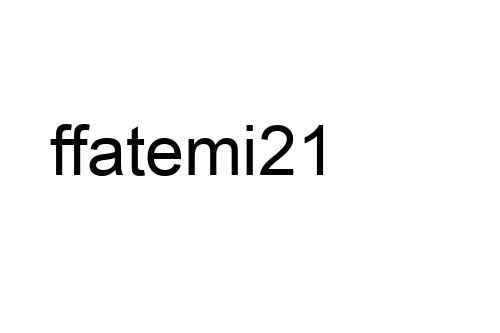Understanding Blockchain Technology
Blockchain is a decentralized digital ledger that records transactions across multiple computer systems in a secure, transparent, and tamper-proof manner. Each block in the chain contains a set of transaction data, a timestamp, and a cryptographic hash that links it to the previous block, forming an immutable chain.
Key features like decentralization, transparency, and security make blockchain adaptable to various industries. In real estate, these features ensure that all transaction details, including ownership history and payment information, are securely documented and easily traceable. Unlike traditional databases, blockchain doesn’t rely on a single point of control, minimizing risks like fraud or data loss.
Smart contracts, an integral part of many blockchain platforms, automate processes by executing pre-defined conditions without intermediaries. For instance, a property sale using a smart contract could automatically release funds to the seller once all predefined terms, like title verification, are satisfied. This automation reduces manual errors, accelerates transaction speeds, and enhances trust.
Tokenization, another aspect, divides real-world assets like properties into digital units stored on a blockchain. For example, a piece of real estate could be tokenized, enabling fractional ownership and easier investment opportunities. This innovation streamlines asset management while broadening access to property investments.
By understanding these fundamental components, the application of blockchain in real estate becomes clearer. Its potential to disrupt traditional systems lies in its ability to combine efficiency, trust, and security within one framework.
Current Challenges in Real Estate Transactions
Real estate processes often involve inefficiencies, high costs, and trust issues. These challenges create obstacles for buyers, sellers, and investors.
Lack of Transparency
Traditional real estate transactions rely on intermediaries like agents, title companies, and banks. This dependency obscures critical transactional details. Hidden fees, opaque ownership data, and incomplete property records contribute to mistrust and disputes among parties involved.
High Transaction Costs
Real estate transactions incur significant costs due to agent commissions, legal fees, and third-party services. For instance, agent commissions range from 5% to 6% in the US, while legal and administrative services add thousands of dollars more. These costs often deter smaller investors and can make property purchases less accessible.
Inefficiency and Delays
Manual documentation and lack of process automation slow down real estate transactions. For example, title searches and deed verifications can take weeks or months to complete, often delaying closings. Additionally, errors in paperwork or miscommunications between parties compound these delays, increasing frustration and financial risk.
How Blockchain Is Transforming Real Estate Transactions

Blockchain is transforming real estate by introducing innovative solutions to longstanding inefficiencies. It enhances transparency, reduces costs, and simplifies property transfers.
Enhancing Transparency and Security
Blockchain ensures transparency by providing a tamper-proof, decentralized ledger for all transaction records. Each transaction block includes time-stamped data that’s immutable, reducing fraud risks. For example, buyers can confirm ownership history, payment records, and legal obligations directly from the blockchain, eliminating reliance on intermediaries. This increases trust in transaction processes since all parties access the same verified data.
Enhanced security results from cryptographic algorithms that safeguard information on the blockchain. These features prevent unauthorized access and data breaches. In real estate, property titles and legal documents stored on blockchain systems remain secure, minimizing disputes over authenticity.
Reducing Transaction Costs
Blockchain lowers transaction costs by minimizing third-party involvement. Processes like escrow, title verification, and legal contract execution are automated through smart contracts, which enforce conditions without requiring intermediaries. For instance, automating title transfers eliminates processing fees typically incurred through manual verification by title companies or agencies.
Additionally, blockchain’s efficiency reduces administrative overhead for buyers and sellers. Traditional processes often involve brokers, legal professionals, and redundant documentation fees, whereas blockchain simplifies it, making real estate investments more accessible, even for smaller-scale investors.
Streamlining Property Transfers
Blockchain accelerates property transfers by removing manual tasks and integrating automation. Using blockchain-enabled registries, parties can execute property deeds swiftly, circumventing delays caused by title searches and verifications. For example, properties tokenized as digital assets can facilitate transactions in minutes rather than weeks.
Smart contracts automatically handle conditions like payments or ownership transfers once all requirements are met. This eliminates bottlenecks caused by human oversight, improving speed and reliability. Blockchain’s efficiency ensures a seamless process in complex real estate transactions.
Real-World Applications of Blockchain in Real Estate
Blockchain is disrupting real estate with practical applications that address industry inefficiencies. It integrates innovative tools like smart contracts, tokenization, and decentralized registries to transform property transactions.
Smart Contracts in Practice
Smart contracts are reshaping the execution of property agreements. They automate processes by executing predefined terms without intermediaries. For example, I’ve seen smart contracts handle escrow payments, ensuring funds are instantly released upon meeting conditions like deed transfers. This reduces delays, minimizes manual errors, and eliminates reliance on costly intermediaries while ensuring credibility through blockchain validation.
Tokenization of Real Estate Assets
Real estate tokenization enables fractional ownership, making property investment more accessible. Assets are divided into digital tokens that represent shares of a property. I’ve observed this application on platforms where investors can purchase tokens of commercial spaces or luxury apartments, diversifying portfolios with minimal capital. Tokenization also enhances liquidity since assets can be traded on blockchain-based marketplaces in real time without cumbersome legal procedures.
Decentralized Property Registries
Decentralized registries simplify property record management. Blockchain securely stores details like ownership history, property deeds, and encumbrances, accessible to authorized parties. For instance, several governments and private entities now pilot blockchain-based land registries, reducing fraud risks from tampered records. I find it revolutionary that these registries provide immutable, timestamped entries, streamlining title verification and expediting property conveyance processes.
The Future of Blockchain in Real Estate
Blockchain’s potential to reshape real estate lies in its ability to address persistent industry challenges and introduce new opportunities. Its continued evolution is expected to unlock advancements in property management, investment, and global real estate markets.
- Globally Unified Systems
Standardized blockchain-based platforms could harmonize property registration and ownership verification across borders. If adopted universally, decentralized registries may reduce jurisdictional discrepancies and enhance international property transactions. - Broader Implementation of Tokenization
Tokenized real estate may redefine investment access by enabling smaller, more diverse investors to participate in previously inaccessible markets. Fractional ownership could improve liquidity, allowing properties to be traded like stocks without delays. - Enhanced Smart Contracts
Smart contracts may automate more complex agreements, including lease management, property rentals, and multi-party transactions. Expanding their scope could further eliminate inefficiencies in traditional frameworks. - Integration with Emerging Technologies
Combining blockchain with artificial intelligence and the Internet of Things (IoT) offers promising solutions for property valuation, predictive maintenance, and energy management. These integrations could optimize real estate operations and reduce costs. - Improved Data Privacy and Scalability
Advancements in blockchain infrastructure are likely to address privacy concerns, integrating secure methods for protecting sensitive transaction data. Enhanced scalability could support higher transaction volumes, enabling widespread adoption.
Future developments depend on overcoming current barriers, but blockchain’s foundational characteristics position it as a transformative tool for the real estate industry.







































































































































































































































































































































































































































































































































































































































































































































































































































































































































































































































































































